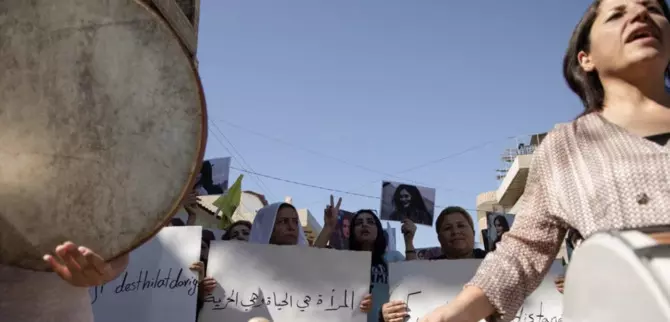
Amnesty warns executions used by Iran to repress ethnic minorities
text_fieldsLondon: According to Amnesty International, Iran is using the execution of members of ethnic communities as a "tool of repression".
Amnesty International claimed that among the 94 people executed by the regime since the year's beginning, 14 of them were Kurds, 13 were Baluchis, and one was an Ahwazi Arab. It also claimed that many more had been sentenced to death after "grossly unfair" trials.
The Abdorrahman Boroumand Center's executive director, Roya Boroumand, said, “The Iranian authorities are carrying out executions on a frightening scale. Their actions amount to an assault on the right to life and a shameless attempt not only to further oppress ethnic minorities but to spread fear that dissent will be met with brute force, either in the streets or in the gallows.”
According to Amnesty International, the executions, many of which took place in secret, were carried out in retaliation for the widespread demonstrations that have gripped Iran since September 2022 after a Kurdish woman named Mahsa Amini was killed by the notorious morality police of the nation for wearing her headscarf incorrectly, Arab News reported.
According to Amnesty, Hassan Abyat, an Ahwazi Arab, was killed on February 20 in Khuzesta, and two days later, Arash (Sarkawt) Ahmadi, a Kurd, was executed in Kermanshah. It is alleged that both men were tortured to get them to admit to their crimes, and both of those confessions were then shown on state television.
According to a witness who spoke to Amnesty, Abyat was accused of being involved in the 2011 murder of a Basij militia member and was consequently tied to a bed, beaten, and electrocuted. Meanwhile, Ahmadi was subjected to torture by the Islamic Revolutionary Guard Corps because of his claimed affiliation with an Iranian-Kurdish organisation. Before being executed, neither individual was permitted to see his family.
Minorities have been found guilty of "vaguely worded" religious-based crimes, such as "efsad-e fel arz," or "spreading corruption on earth," and/or "moharebeh," or "enmity against God," in a significant number of instances.
Diana Eltahawy, Amnesty International’s deputy regional director for the Middle East and North Africa, said: “It is harrowing that executions routinely occur amid the systematic use of torture-tainted ‘confessions’ to convict defendants in grossly unfair trials. The world must act now to pressure the Iranian authorities to establish an official moratorium on executions, quash unfair convictions and death sentences, and drop all charges related to peaceful participation in protests
“We also urge all states to exercise universal jurisdiction over all Iranian officials reasonably suspected of criminal responsibility for crimes under international law and other grave violations of human rights.”
Amnesty warned that 12 more Ahwazi Arab and Baluchi people, in addition to those who have already been executed, face the death sentence as a result of unfair convictions and coerced confessions for "membership of illegal groups" in cases dating back to 2017.
In connection with protests that took place in the province of Sistan and Baluchestan in September of last year, six additional Baluchi men—among them one who has a physical disability—were given execution sentences between December and January.
In violation of international law, Shoeib Mirbaluchzehi Rigi, Kambiz Khorout, Ebrahim Narouie, Mansour Hout, Nezamoddin Hout, and Mansour Dahmaredeh were also accused of crimes like stone-throwing and arson. All of them reportedly underwent torture in order to obtain confessions.






















